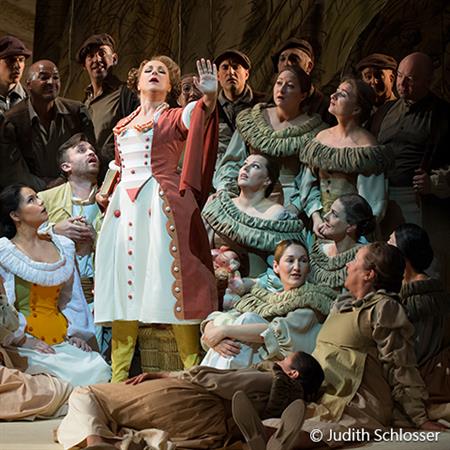Among Western operas, which always reflect the vicissitudes of life and every phenomenon on earth, Italian comic opera is widely popular due to its refreshing, lively and easy-to-understand nature. Gaetano Donizetti (1797-1848) is one of the three great masters of Italian opera in the first half of 19th century and has shaped deep-seated traditions for Italian operatic and vocal art with his remarkable and appealing vocal melodies, exquisite and detailed character portrayal as well as intense dramatic composition. His L'Elisir d'Amore ("The Elixir of Love"), an opera in two acts, was the most frequently performed work at that time, and has remained continually in the international opera repertory.
To commemorate the 170th anniversary of the death of Donizetti, the Macao International Music Festival will kick off with the timeless Elixir of Love in a production by Zurich Opera House. The highly-praised German stage director, Grischa Asagaroff will join hands with tenor Arturo Chacón-Cruz, pupil of Plácido Domingo, and acclaimed sopranoSerena Gamberoni to enlighten us about the magical power of love amidst the magnificent music by this great Italian composer!
Duration: approximately 2 hours and 45 minutes, including one interval
Performed in Italian, with surtitles in Chinese, Portuguese and English
Conductor: Ralf Weikert
Director: Grischa Asagaroff
Lighting Design: Jürgen Hoffmann
Set and Costume Design: Tullio Pericoli
Macao Orchestra
Coro Lirico Siciliano
Production: Zurich Opera House
Characters and Cast
Nemorino: Arturo Chacón-Cruz, Tenor
Adina: Serena Gamberoni, Soprano
Belcore: Alexey Lavrov, Baritone
Dulcamara: Alfonso Antoniozzi, Baritone
Giannetta: Hyesang Park, Soprano

Grand Opening: LElisir dAmore
Is there anything wrong with this page?

